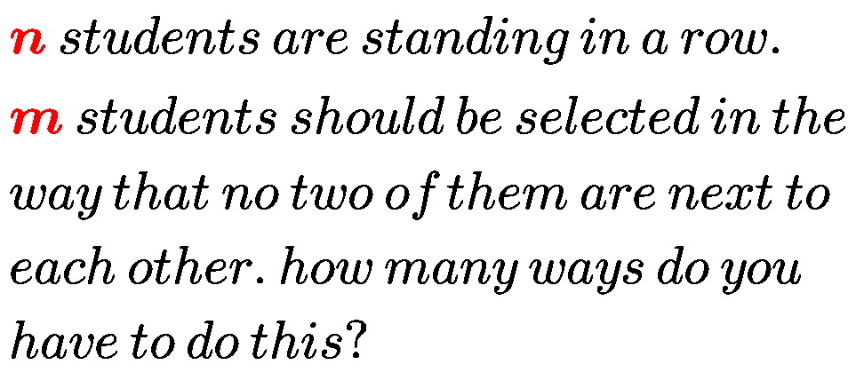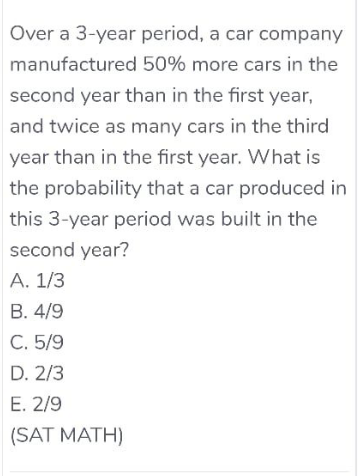
Permutation and CombinationQuestion and Answers: Page 14
Question Number 104134 Answers: 2 Comments: 0
Question Number 103903 Answers: 1 Comments: 5
Question Number 103826 Answers: 1 Comments: 0
Question Number 103716 Answers: 1 Comments: 3

Question Number 103606 Answers: 3 Comments: 1
Question Number 103513 Answers: 2 Comments: 0
Question Number 103410 Answers: 1 Comments: 0
Question Number 103406 Answers: 0 Comments: 3
Question Number 103367 Answers: 1 Comments: 0
Question Number 103357 Answers: 1 Comments: 0
Question Number 103300 Answers: 1 Comments: 0
Question Number 103294 Answers: 1 Comments: 0
Question Number 102816 Answers: 2 Comments: 28
Question Number 102800 Answers: 1 Comments: 0
Question Number 102329 Answers: 0 Comments: 0

Question Number 101880 Answers: 2 Comments: 0
Question Number 101732 Answers: 2 Comments: 1
Question Number 101393 Answers: 1 Comments: 0

Question Number 100971 Answers: 1 Comments: 0
Question Number 100444 Answers: 4 Comments: 0
Question Number 99985 Answers: 0 Comments: 0
Question Number 99905 Answers: 0 Comments: 5

Question Number 99194 Answers: 1 Comments: 0

Question Number 98405 Answers: 1 Comments: 0

Question Number 98406 Answers: 0 Comments: 0
Question Number 98030 Answers: 0 Comments: 1

